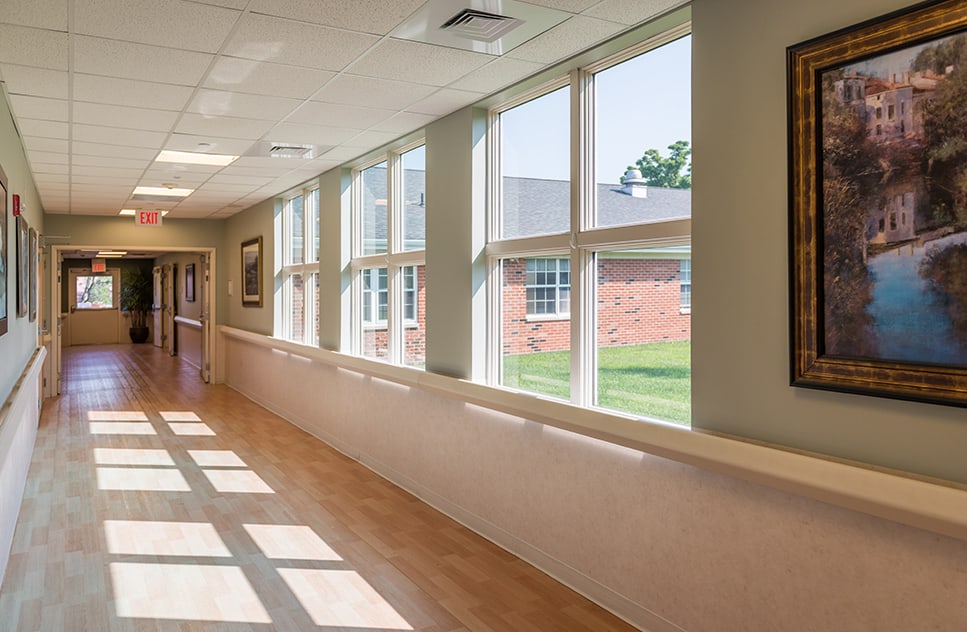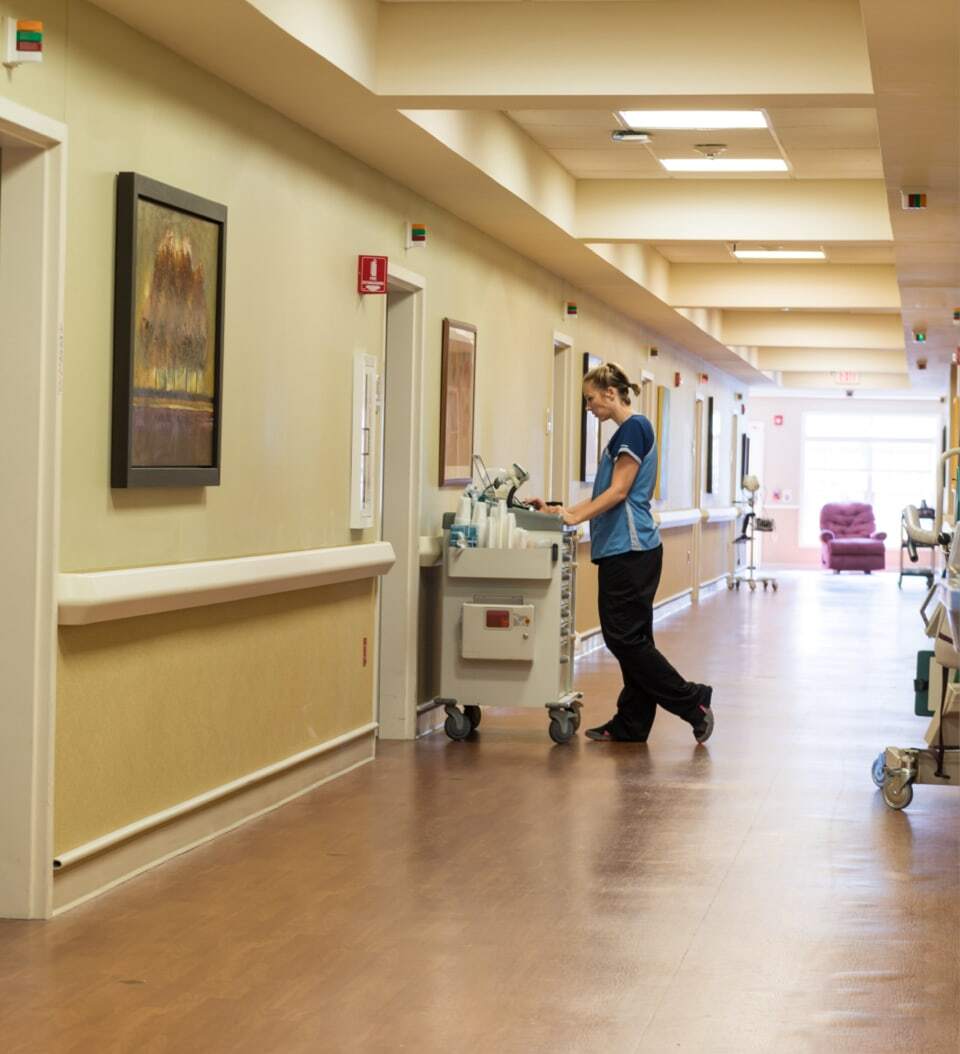Key Takeaways
- The length of stay depends on the resident’s medical condition, therapy needs, and overall progress.
- Recovery from surgery, illness, or injury often involves physical, occupational, or speech therapy.
- Families may pay out-of-pocket or explore long-term care insurance and Medicaid after Medicare coverage ends.
- Transitions to assisted living or memory care are common after a skilled nursing stay. These lower the risk of future hospitalizations or medical relapses.
How Long People Usually Stay in Skilled Nursing
When a loved one is recovering from surgery, illness, or injury, a skilled nursing community can offer the short-term support they need. These stays are often part of a larger recovery journey, especially following a hospital discharge. But one of the most common questions families ask is: how long can someone stay in skilled nursing care?
The answer depends on a few important factors—some medical, some personal. The community will likely assess your loved one’s abilities to gain a full understanding of what they need. Then, they’ll work with you to create a personalized care plan so that your loved one can always get the care they need.
The Average Time People Spend in Skilled Nursing
The length of stay in a skilled nursing community depends on a person’s medical condition, rehabilitation goals, and how well they’re progressing. Some stays last just a few weeks. Others may extend into longer periods, especially for more complex health needs. Longer stays are recommended when a person managing ongoing medical issues needs professional monitoring and care.
Skilled nursing is recommended after events like:
- Strokes
- Joint replacements
- Hospitalizations
- Surgeries
In skilled nursing, residents gain medical support from a team of experienced healthcare professionals. However, unlike most hospitals, skilled nursing communities can offer a comfortable environment that feels just like home.
Medicare Coverage and the 100-Day Limit
Medicare Part A covers skilled nursing care, but potential residents must meet several specific requirements. A person must have a qualifying 3-day hospital stay before entering a skilled nursing community for Medicare to cover their care.
Here’s how Medicare coverage breaks down:
- Days 1-20: Medicare covers 100% of approved costs
- Days 21-100: The person pays a daily coinsurance amount (around $200 per day in 2024)
- After 100 days: The person is responsible for all costs unless they qualify for a new benefit period
A benefit period starts when a person enters the hospital and ends when they haven’t received skilled care for 60 consecutive days. This means they could potentially qualify for another 100 days of coverage if they meet the requirements again.
Once Medicare coverage ends, there are still options to continue care. Your family can pay out-of-pocket if you still need skilled nursing services for a loved one, or your family can explore other coverage options like supplemental insurance.
Factors That Affect Your Length of Stay
Everyone’s recovery journey is unique. A few key factors often shape how long someone remains in a skilled nursing community.
Recovery Progress
If your loved one is regaining strength quickly and meeting therapy milestones, a shorter stay may be all that’s needed. Progress is evaluated regularly by therapists and nursing staff.
Type of Medical Condition
Some conditions—like strokes, fractures, or surgical recovery—respond well to short-term rehab. Others, such as chronic heart failure or diabetes complications, may require longer care plans.
Type of Therapy Required
Physical, occupational, and speech therapy all play a role in recovery time. More intensive or frequent therapy often leads to longer stays to reach specific health goals.
Safety at Home
Even if your loved one is improving, their home environment must be safe. If they live alone, have limited mobility, or require specialized equipment, the care team may recommend extending the stay.
Family and Caregiver Support
Families with a strong caregiver network and home modifications may feel more comfortable with earlier discharges. Others may need additional time to arrange care, training, or support. This is why many skilled nursing communities also offer respite care, a short-term stay option built around temporary support.

Can You Transition from Skilled Nursing to Another Care Level?
Many families explore other senior living options once skilled nursing care is no longer needed, but some level of support could still be helpful. These next steps are highly personal and depend on your loved one’s abilities and preferences. They’re also the key to lowering the risk of a future hospital stay or regression.
Assisted Living
Assisted living offers help with daily tasks such as bathing, dressing, medication reminders, and meals. These communities also provide social activities, transportation, and a safe environment for continued healing. It’s a good option when your loved one needs some support—but no longer requires daily clinical care.
Memory Care
If your loved one is experiencing dementia or cognitive changes, memory care communities provide a secure, structured environment with trained staff. These communities are designed to reduce confusion, support independence, and offer meaningful daily routines. They’re incredibly valuable when cognitive problems are involved.
Making the Right Decision for Your Family
Navigating skilled nursing stays is rarely easy. But you don’t have to make these decisions alone. Your care team can help assess your loved one’s condition, explain transition timelines, and guide you toward the next steps. And here at Kingston of Miamisburg, we’re ready to help your family navigate this time.
In our community, we’re here to support you and your family throughout your entire senior living journey. Whether you need short-term rehabilitation or are exploring long-term care options, we can help. Schedule a visit with us today to learn more about our services and how we can support your family.







